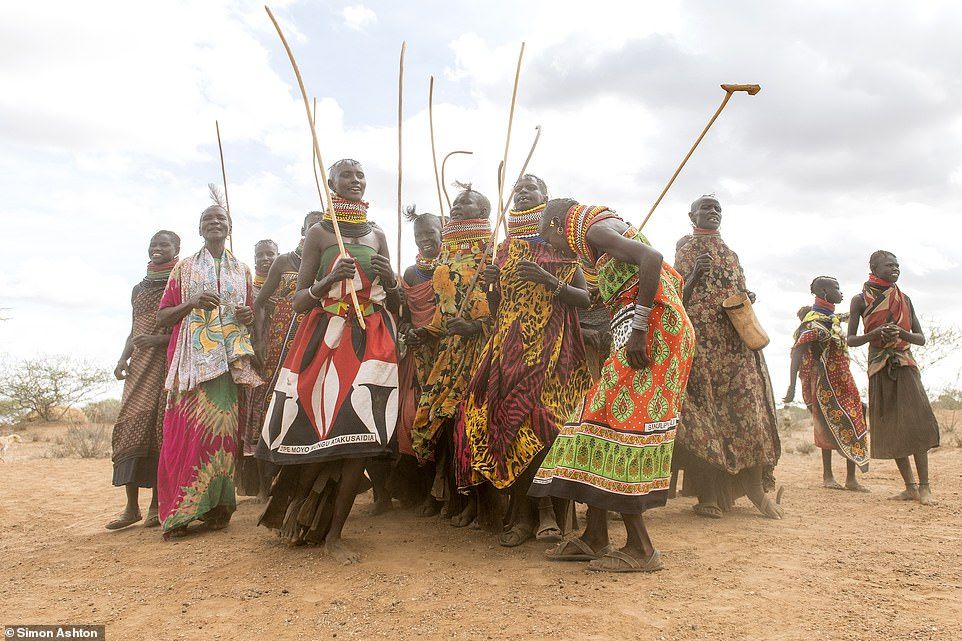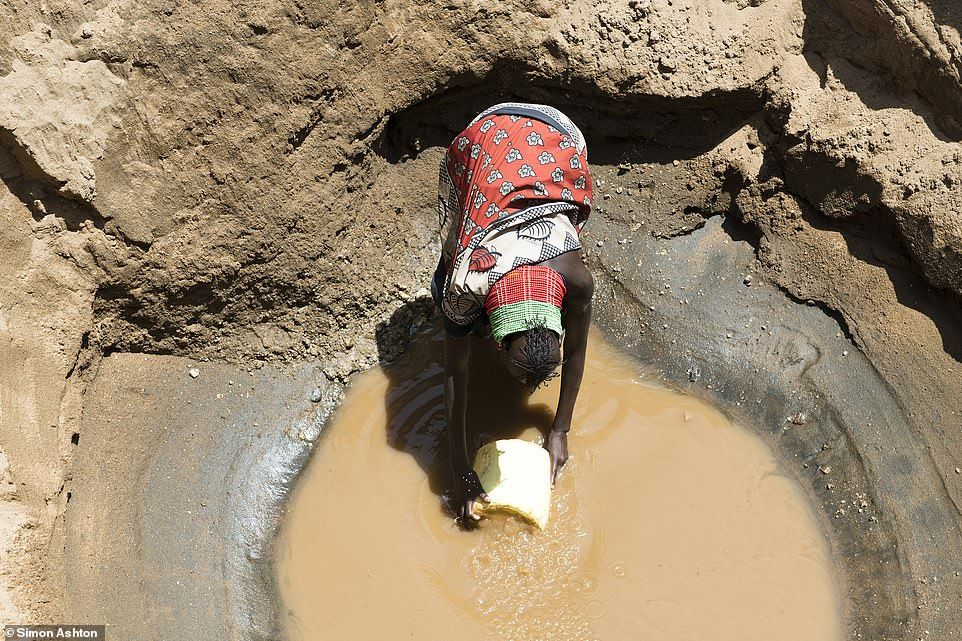
Dying for a drink: Inside the nomadic Turkana tribe
In one of the driest places on earth, women of the Turkana desert tribe are in charge of finding water.
From sunrise to sunset, tribeswomen trek for miles and dig for water with their bare hands as the worst drought in decades shows no sign of abating in desolate northwestern Kenya.
It's supposed to be the rainy season but the once wide and flowing river beds are dried up and thousands of animals have died. All that remains are the sturdiest of camels, goats and donkeys.
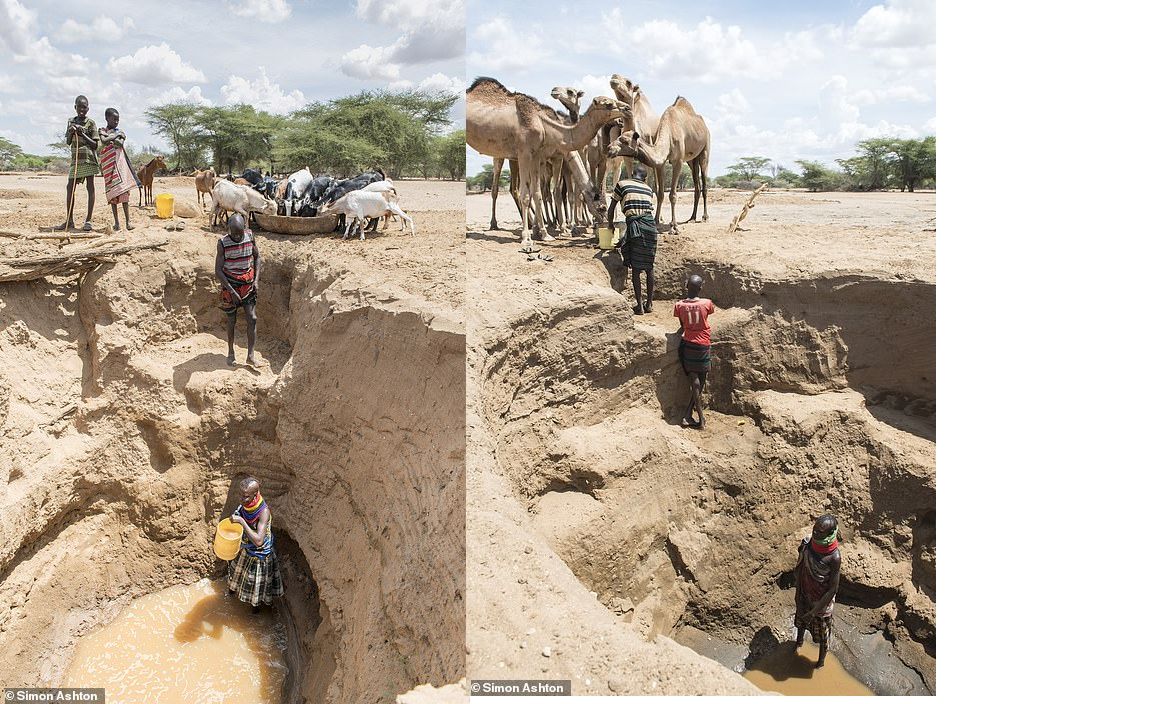
The Turkana tribe, who live in this remote and inhospitable land, see it is a woman's job to provide water. Four years since the last substantial rainfall, that role has become deadly.
MailOnline visited a struggling community - living roughly 100 miles from the tourist hotspot of Lake Turkana - and heard how a woman was recently killed when a 14-foot water hole she dug collapsed and trapped her.
Turkana culture does not permit a dead body to be moved because it's considered cursed so the woman was still buried at the bottom of the pit that was supposed to be her family's lifeline.
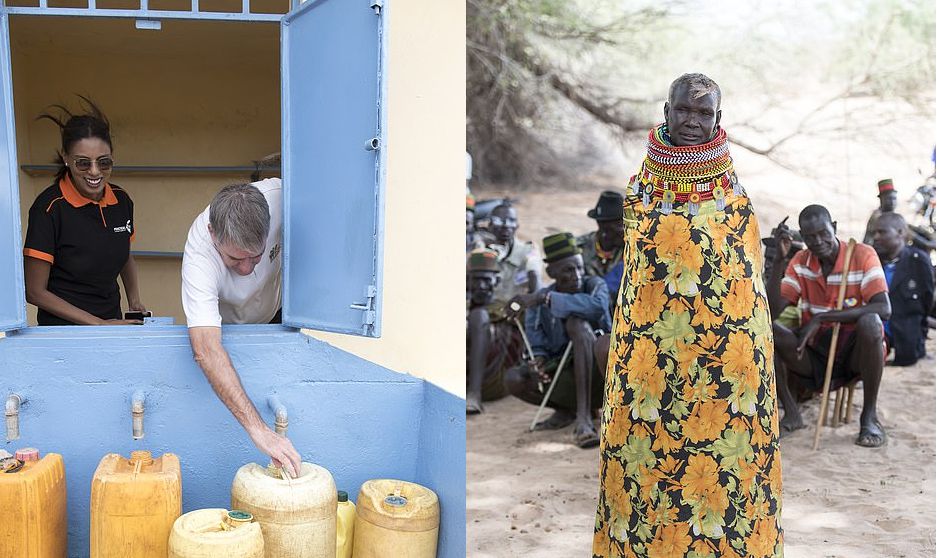
Here women, including those that are pregnant, walk around 12 miles each day in an unimaginable quest to find water in one of the driest places on earth. If successful, they carry 20-litre cartons atop
In the village of
They estimated the newly formed waterhole, named Sasak Echoke, contained enough brown liquid to last them just a few days.
At the top of the hole, men and children poured buckets of the pungent water into makeshift troughs for the camels, goats and donkeys to drink from. These animals are the nomadic tribe's livelihood.
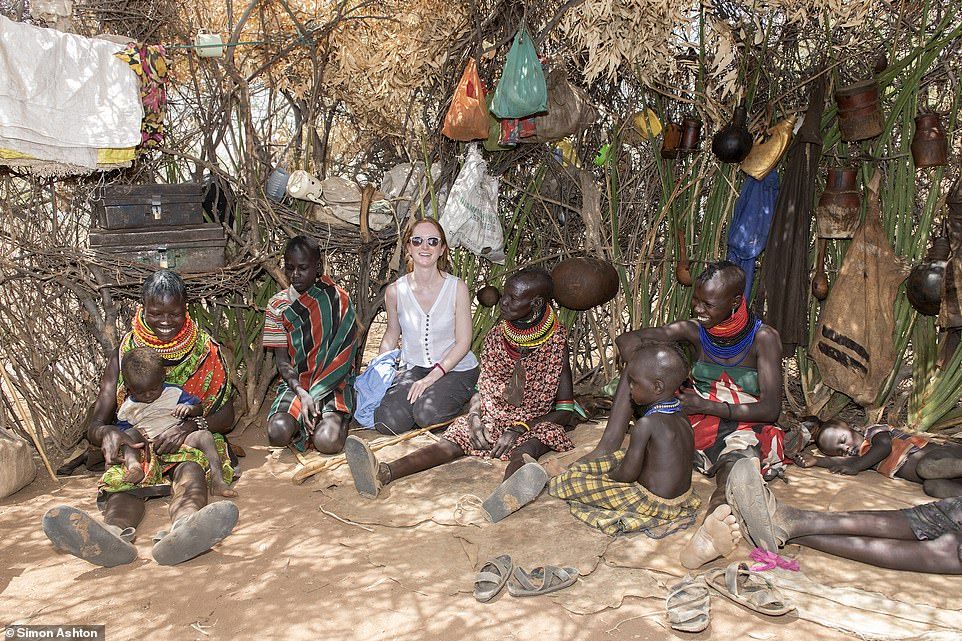
In their polygamous society, camels are used as dowry when a man wants to make a woman his wife. Men take as many wives as they can afford and girls are believed to be ready for marriage as soon as they hit puberty, despite Kenyan law stating both men and women must be 18 before they can wed.
From sunrise to sunset, tribeswomen trek for miles and dig for water with their bare hands as the worst drought in decades shows no sign of abating in desolate northwestern Kenya.
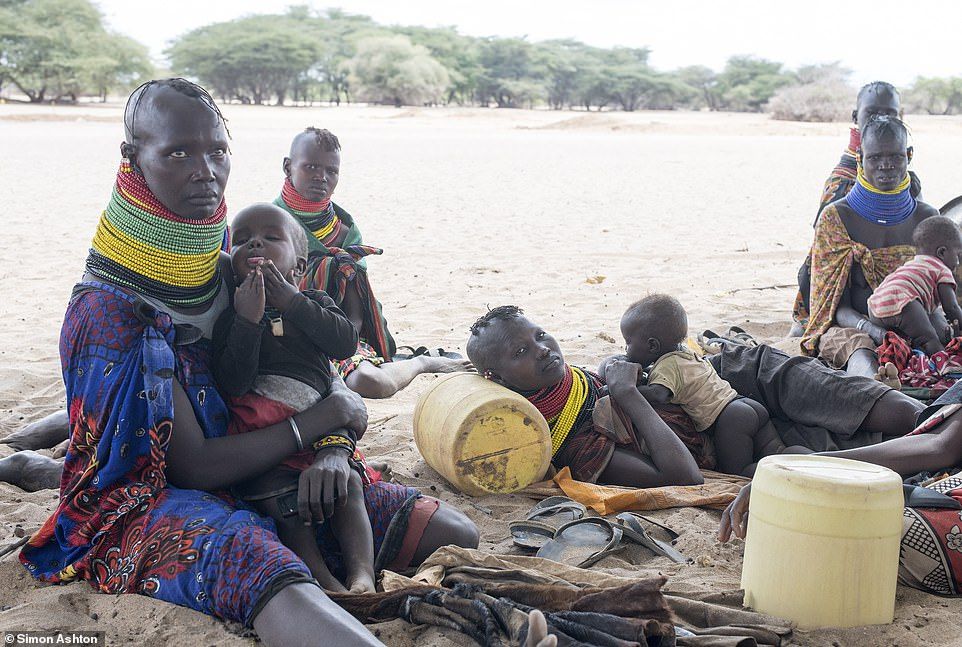
It's supposed to be the rainy season but the once wide and flowing river beds are dried up and thousands of animals have died. All that remains are the sturdiest of camels, goats and donkeys.
The Turkana tribe, who live in this remote and inhospitable land, see it is a woman's job to provide water. Four years since the last substantial rainfall, that role has become deadly.
MailOnline visited a struggling community - living roughly 100 miles from the tourist hotspot of Lake Turkana - and heard how a woman was recently killed when a 14-foot water hole she dug collapsed and trapped her.
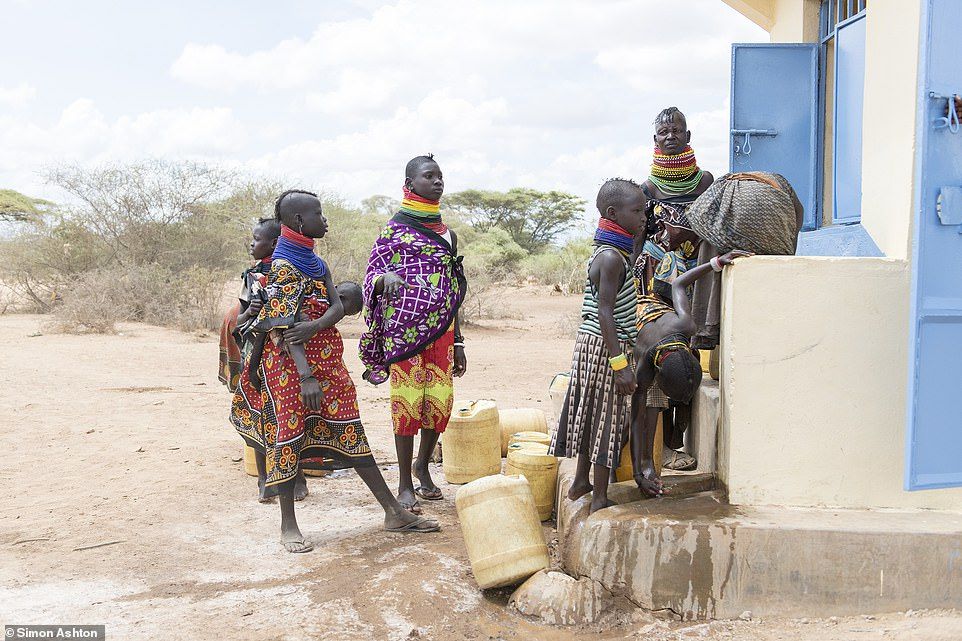
Turkana culture does not permit a dead body to be moved because it's considered cursed so the woman was still buried at the bottom of the pit that was supposed to be her family's lifeline.
Here women, including those that are pregnant, walk around 12 miles each day in an unimaginable quest to find water in one of the driest places on earth. If successful, they carry 20-litre cartons atop
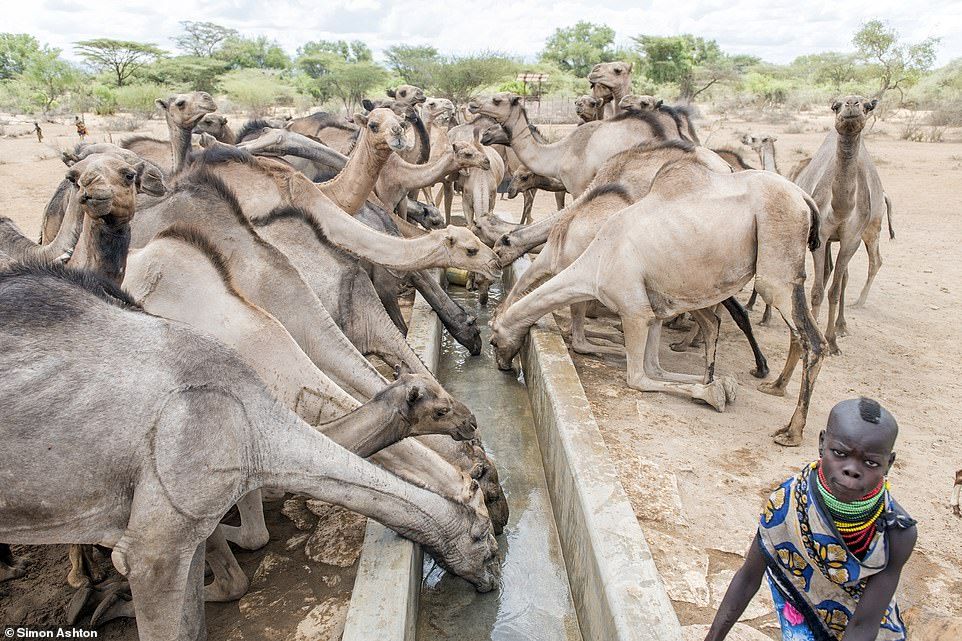
In the village of
They estimated the newly formed waterhole, named Sasak Echoke, contained enough brown liquid to last them just a few days.
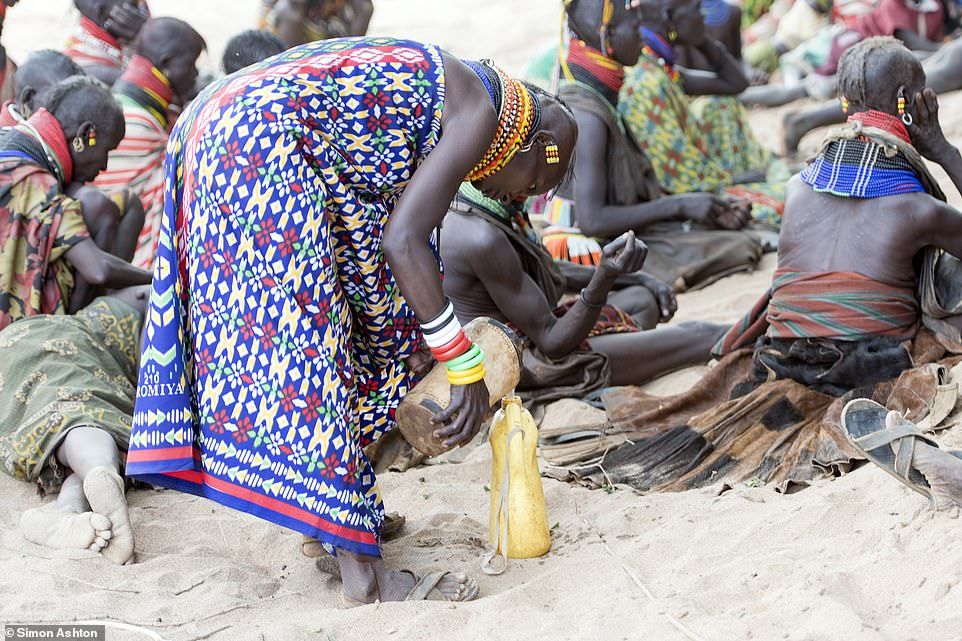
At the top of the hole, men and children poured buckets of the pungent water into makeshift troughs for the camels, goats and donkeys to drink from. These animals are the nomadic tribe's livelihood.
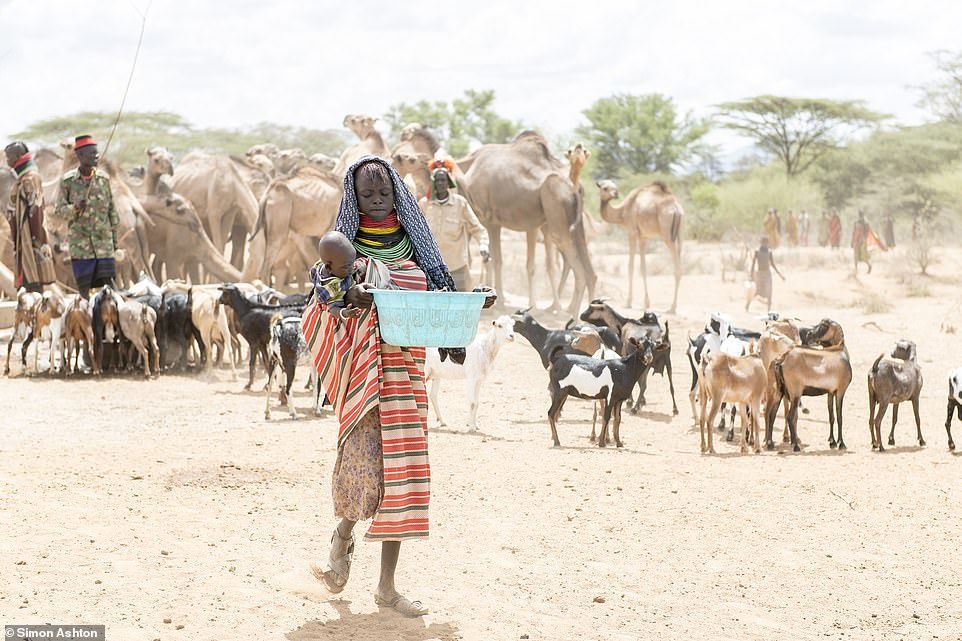
In their polygamous society, camels are used as dowry when a man wants to make a woman his wife. Men take as many wives as they can afford and girls are believed to be ready for marriage as soon as they hit puberty, despite Kenyan law stating both men and women must be 18 before they can wed.
